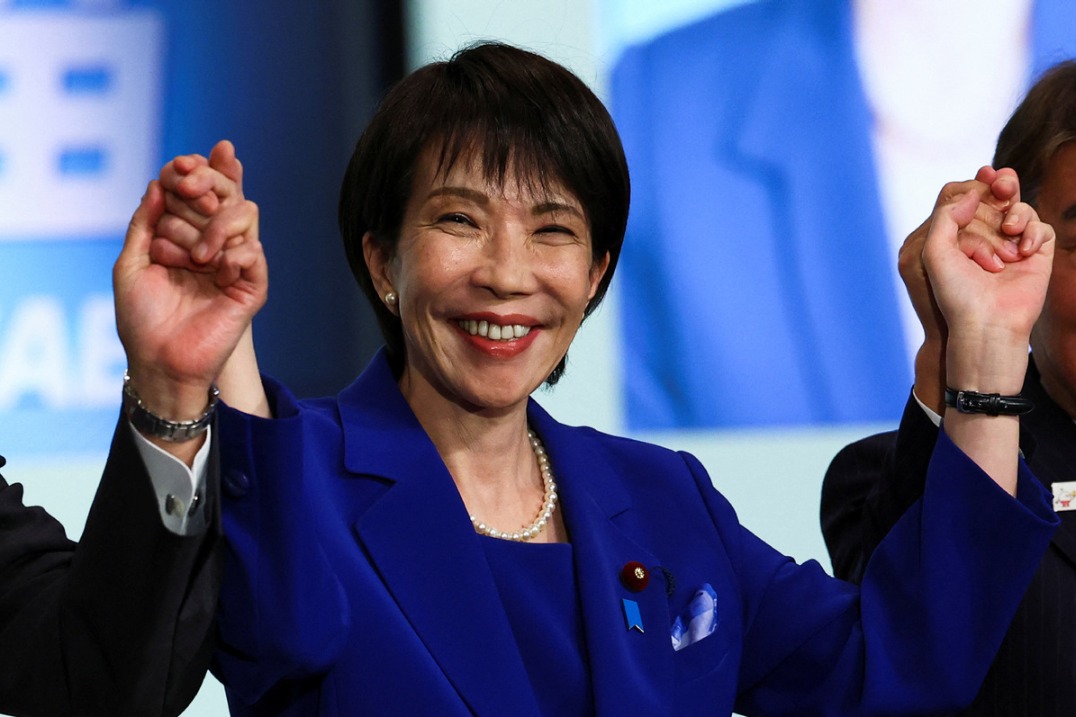Abe's maneuverings for constitutional revision may yet fail

The last time Japan's ruling coalition of Liberal Democratic Party and Komeito lost the majority in the Tokyo assembly was in July 2009. Following the loss, then not-so-popular Japanese prime minister Taro Aso dissolved the lower house and called a general election, in which the opposition Democratic Party won a landslide victory and ended the LDP's half-century rule in Japan.
History may not repeat itself always. It does offer lessons, however. The Tokyo assembly election has for decades been seen as a bellwether of Japan's general election. On July 2, Tokyo Governor Yuriko Koike's fledging party Tomin First no Kai (Tokyoties First party) and its allies won 79 seats in the 127-member city assembly, bringing the LDP's majority to an end. The LDP's seat share dropped from 57 to 23-the lowest ever.
On the surface, the assembly election was a referendum on Koike, who was elected the city's first female governor last year. But many view the poor showing of the LDP as a rebuke to Prime Minister Shinzo Abe and his administration.
Abe and his ministers, who, many voters say, are arrogant, have in recent years invited public anger. Many even say Abe abused his power to help his close friend's educational institution to open a veterinary school in one of Japan's strategic special zones. And the extremely heavy-handed approach of the LDP and Komeito in the parliament, where they have two-thirds majority, has resulted in a social and political backlash.
Abe doesn't need to call an election until December 2018. Unlike Aso in 2009, he still has some cards to play. He is expected to reshuffle the Cabinet and LDP leadership in August or September in the hope of quelling public anger.
Abe may retain Aso, now deputy prime minister and finance minister, and his troubleshooter and Chief Cabinet Secretary Yoshihide Suga in the Cabinet-both have survived the Cabinet reshuffles since Abe's comeback as prime minister in December 2012. But he is likely to drop Defense Minister Tomomi Inada and Justice Minister Katsutoshi Kaneda from the Cabinet.
The gaffe-prone Inada, who is Abe's protégé, has been heavily criticized by the opposition for, among other scandals, covering up the data of Japan's Self-Defense Forces peacekeeping operation in South Sudan. Actually, the opposition camp demands her immediate resignation. And Kaneda triggered a storm by refusing to provide a good enough explanation for the ominous anti-conspiracy bill, which was railroaded through the parliament.
Japan's Foreign Minister Fumio Kishida, who heads the third-largest group in the faction-ridden LDP, appears desperate to become next leader of the party, which is now led by Abe. And the members of parliament in Kishida's faction have asked him to quit the Cabinet to prepare for the party leadership election in September 2018.
Toshihiro Nikai, the LDP secretary-general, and Masahiko Komura, the party's vice-president, are expected to retain their party posts, according to the Jiji Press. Nikai is important for Abe because of his "good" relations with lawmakers in China and the Republic of Korea. And Abe wants Komura to play a bigger role as LDP coordinator to facilitate the drafting of a revised Constitution.
By reshuffling the LDP leadership, Abe intends to consolidate his power in the party as competition for the party's top position intensifies. But he will also need a new Cabinet to prepare for debates with the opposition during the extraordinary session of the parliament in fall. Tough questions await his ministers as Abe is expected to submit the LDP's proposal to amend the Constitution to the lawmakers for deliberation.
The LDP has no immediate rival despite Tokyoites First delivering it the first election blow in four and a half years. But by continuing to lose hearts and minds, Abe is likely to fail in his attempt to amend the Constitution, as any amendment should be approved by both houses of parliament, and put through a referendum.
The author is China Daily Tokyo bureau chief. caihong@chinadaily.com.cn


































